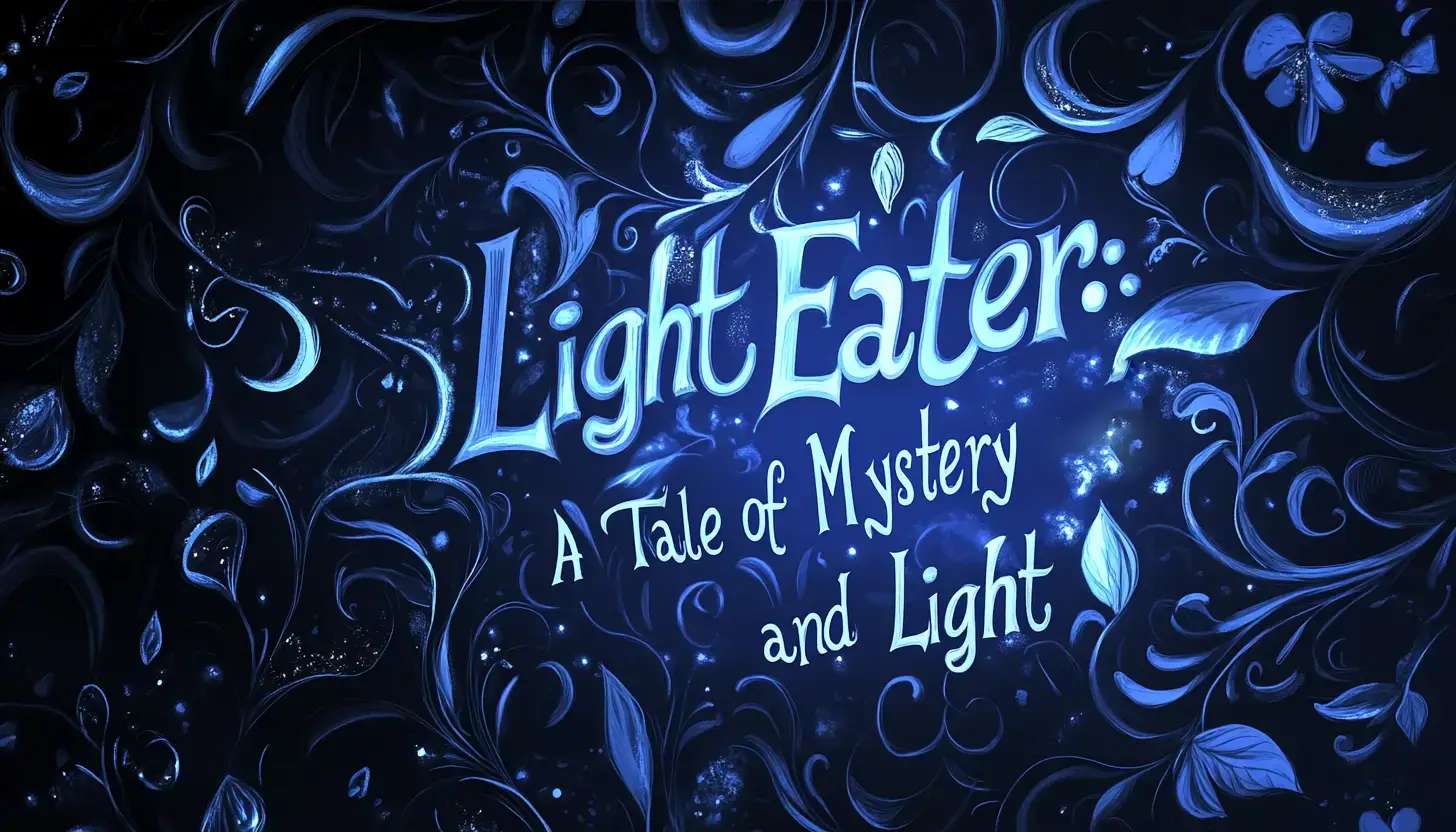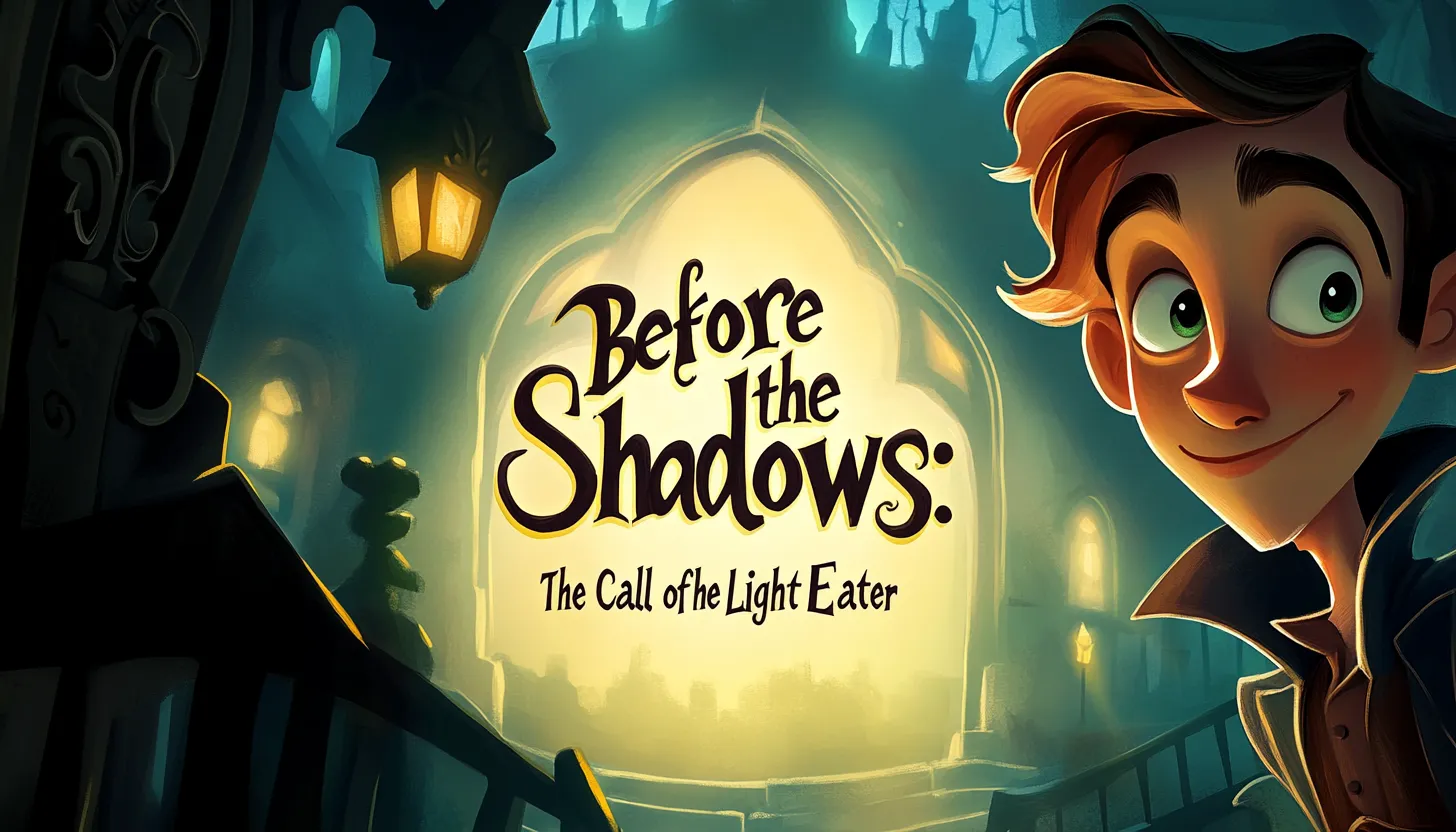Once upon a time, in a distant and forgotten village, there was a mysterious figure known as the "LightEater." Stories about him were whispered in a mix of fear and awe. The LightEater was an enigmatic being, always dressed in a long black coat and a wide-brimmed hat that concealed his face. No one knew where he came from, but everyone in the village knew about his peculiar ability: he could absorb light and store it within himself.
The legend began on a full moon night when the village streets were enveloped in an inexplicable darkness. The stars seemed to have vanished, and the moon, once radiant, was now barely a faint halo in the sky. The villagers, frightened, locked themselves in their homes as whispers about the LightEater spread.
It was said that the LightEater wandered through the empty streets, extending his hands towards the lamps, the candles in the windows, and any trace of brightness, absorbing them completely. But the most surprising thing of all was that as he absorbed the light, his coat seemed to glow with a mysterious and captivating light of its own.
One night, a girl named Lucia, driven by curiosity and an adventurous spirit, decided to follow the LightEater. With a lantern in hand, she ventured into the darkness, keeping a safe distance as she trailed him. As she walked, she noticed that despite absorbing the light, the LightEater seemed to be searching for something more, as if he were lost or seeking an answer.
Lucia followed him into the forest, where, to her surprise, the LightEater stopped in front of an old tree. There, slowly removing his hat, he revealed his face. He was not a monster or a fearsome creature, but an elderly man with sad and weary eyes. In that moment, Lucia realized that the LightEater was not a threat, but someone deeply lonely.
The man began to speak, his voice soft and melancholic. He told her that long ago, he had been a scientist obsessed with capturing the essence of light. In his obsession, he created a device that allowed him to absorb and store light within himself. However, he hadn't foreseen the consequence of his invention: by absorbing the light, he also absorbed the joy and life from everything around him, dooming himself to a life of darkness and solitude.
Moved by his story, Lucia offered him her lantern, saying that while she couldn’t return all the light he had lost, she could share hers with him. The man smiled for the first time in years and, with a gentle gesture, declined the offer. Instead, he asked Lucia to use the lantern to light her way back to the village and to share his story so that people would stop fearing him and understand his sorrow.
From that night on, the LightEater was no longer a figure of fear. The villagers, inspired by Lucia’s bravery and the man’s sad tale, began to leave small lights in their windows, not out of fear, but as a symbol of hope and connection. And though the LightEater continued to wander the streets, he no longer did so in solitude, but accompanied by a gentle glow that somehow made the darkness feel less deep.
And so, the LightEater became a legend not of fear, but of redemption and empathy, reminding us that sometimes, in the depths of darkness, what we truly seek is a bit of light and understanding.





